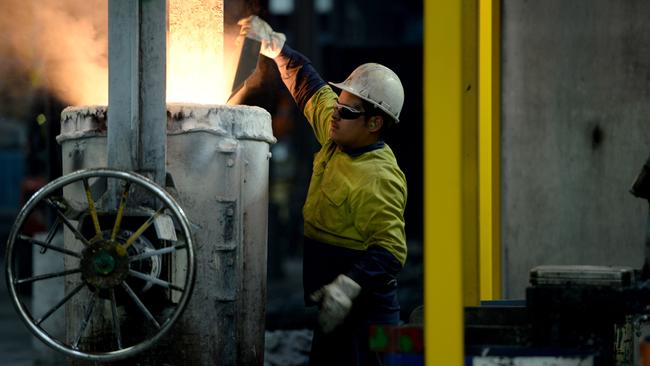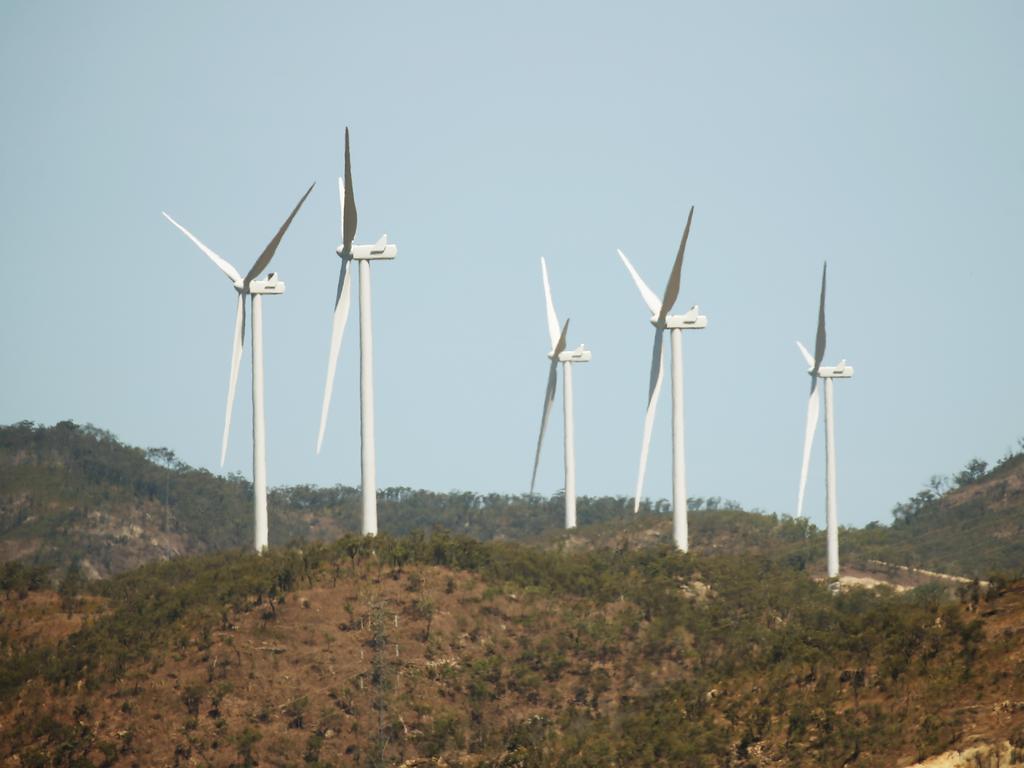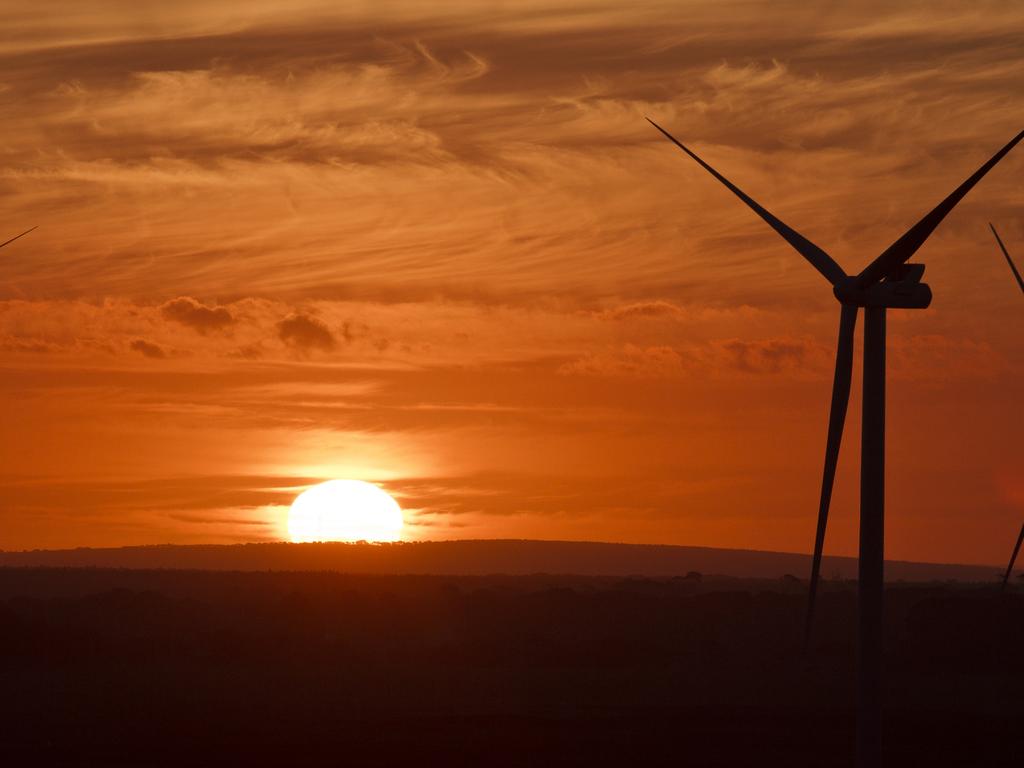Anthony Albanese facing Senate roadblock from Greens and David Pocock on energy bills
The Albanese government faces a fight to pass its emergency energy legislation, as the Greens and independent senator David Pocock demand stronger climate action.

The Albanese government faces a fight in the Senate to pass its emergency energy legislation, as the Greens and independent senator David Pocock demand stronger action on climate policy in exchange for their support.
One Nation senator Pauline Hanson also said she could not support the proposed energy package because “it will have zero impact on energy prices”.
Labor hopes to legislate the emergency energy price relief agreement in a special sitting of parliament on Thursday, but the planned imposition of 12-month price caps of $125 a tonne on coal and $12 a gigajoule on gas also face a backlash from energy producers who plan a major advertising campaign against the intervention.
The Australian Petroleum Production & Exploration Association is demanding an emergency meeting with Anthony Albanese.
It is understood the association held a phone hook-up with industry executives over the weekend, securing $20m for a campaign to raise awareness of the significant investment from the sector and that price caps would hurt the economy and cost jobs.
Senator Pocock said on Sunday the package did nothing to address Australia’s exposure to global energy market volatility, and that he was yet to decide whether he would back the legislation as it stood.
The Climate 200-backed ACT senator has supported short-term measures to alleviate soaring energy prices, but said he had not seen detail of the legislation or received a briefing from the government. “From the high-level information available, the proposed changes do not appear to address the underlying problem – our exposure to volatility in the international market for fossil fuels,” he said.
Senator Pocock has also called for measures to crack down on fossil fuel companies making windfall profits from the development of natural resources. “This crisis underscores the urgent need to transition to clean energy and electrify our households as soon as possible,” he said.
Senator Hanson said Labor’s proposal was not about bringing down the cost of electricity prices, but “bringing down the Australian coal industry”.
Origin chief executive Frank Calabria said: “We are concerned that interventions like price caps will have the opposite impact to that intended, discouraging much-needed investment in new gas resources and causing considerable concern about future gas supply, likely driving up prices over the longer term.”
As energy industry bosses lined up to criticise price caps, Greens leader Adam Bandt made it clear his party would oppose any compensation for coal companies affected by the 12-month price cap, and that energy producers should be forced to pay for more expansive power subsidies for households.
With the Greens partyroom due to meet on Tuesday to consider their support for the bill ahead of the special parliamentary sitting day on Thursday, Mr Bandt said “people need more support than the government is offering”. “Without a plan to get people off gas, the price pain will start up again as soon as Labor’s temporary cap ends and we’ll be back here in 12 months’ time,” he said.
Energy Minister Chris Bowen said the government had the right and was duty-bound to directly intervene in the energy market to force companies to sell their resources at lower prices, as he dismissed industry complaints.
“This is Australian gas under Australian soil, and Australians have a right to access it at a fair price. There is a social licence here and it’s our job to apply that social licence,” Mr Bowen said.
Brett Lawrence, general manager of Australia’s largest iron foundry, Intercast and Forge, said he was “pleasantly surprised” about planned price caps on coal and gas, saying he had been calling for government intervention to tame runaway energy prices since the middle of this year. He said the intervention would help lower costs from “atmospheric levels”, although energy and gas would remain expensive.
Mr Lawrence said he anticipated the gas prices for his South Australia-based foundry could drop by 10-15 per cent. Electricity prices could settle at levels about twice as high as two years earlier, rather than four times as high.
“For manufacturing businesses, particularly high energy users, it will be a welcome relief,” he said. Mr Lawrence played down arguments from producers that this would threaten future investment in the sector, saying the companies would not have factored in such extraordinary prices.
“While gas and the like generators were making hay while the sun shone, the rest of the economy would have had to enter a position where multiple businesses would have fallen over,” he said.
As manufacturers welcomed the proposed package, opposition energy spokesman Ted O’Brien signalled Labor was unlikely to receive Coalition support for legislation which he called a “disaster in the making”.
Mr O’Brien told Sky News the government’s intervention would “fail in the short term, but have a disastrous effect in the longer term because it will kill supply”.
“I doubt very much my colleagues are going to stand by and have the Australian economy ruined by a government that cannot explain this package, has not modelled this package, and has no implementation plan for this package,” he said.
Credit Suisse analyst Saul Kavonic said the government had “declared war on the gas industry”. He told clients at the weekend that the price caps would lead to “energy shortages, job losses in marginal seats, and a strong anti-Labor advertising campaign ahead of the next election”.
MST Marquee analyst Mark Samter was equally scathing.
“This is the single worst piece of energy policy I have seen anywhere in the world in almost 20 years looking at global energy markets, despite staunch competition from many other dreadful policies around the world,” he said.
Treasury officials said the price caps would lower inflation in 2023-24 by 0.5 percentage points, an outcome which suggests the Reserve Bank could be under less pressure to raise rates in the new year.
Judo Bank economic adviser Warren Hogan said spending $3bn in state and commonwealth money to subsidise power bills for vulnerable households was clearly less inflationary than providing a similar level of support through cash handouts, and the intervention was “the right thing to do” in the circumstances.
But Mr Hogan said the package of measures, including the coal and gas price caps, still represented a fiscal injection into the economy and raised the risk of making the Reserve Bank’s job harder and lead to more rate rises should the economy still be running above capacity next year.
“The government is taking a big bet that the economy is going to slow down significantly over the next year, and that will mean the inflationary consequences of providing this support will be minimised,” he said. “But if the economy does prove more resilient – and wages continue to grow and inflationary pressures are more stubborn than expected – then that would magnify the inflationary consequences and increase the chance the RBA will need to raise rates to a level that could cause a recession.”
Additional reporting: Sarah Ison






To join the conversation, please log in. Don't have an account? Register
Join the conversation, you are commenting as Logout